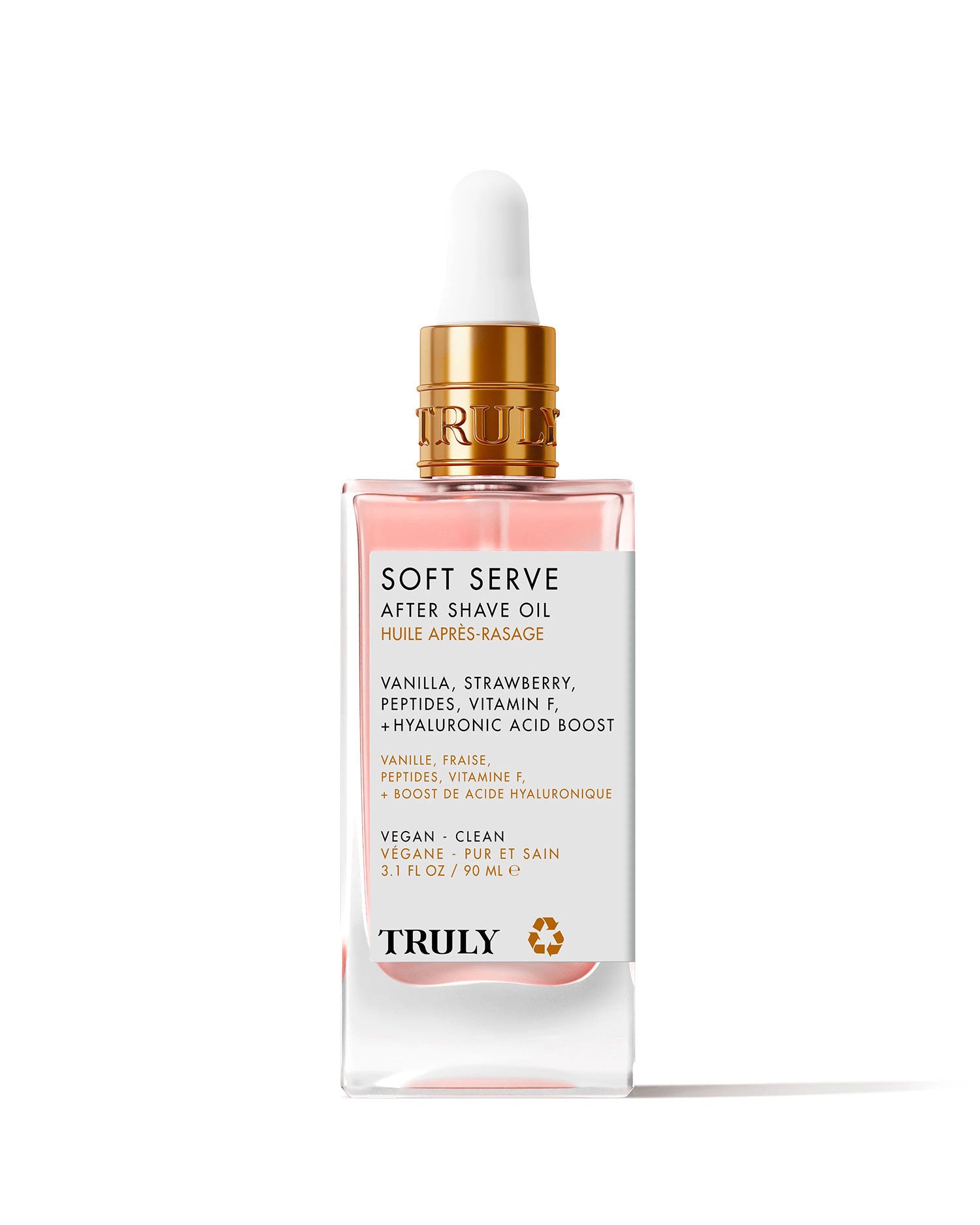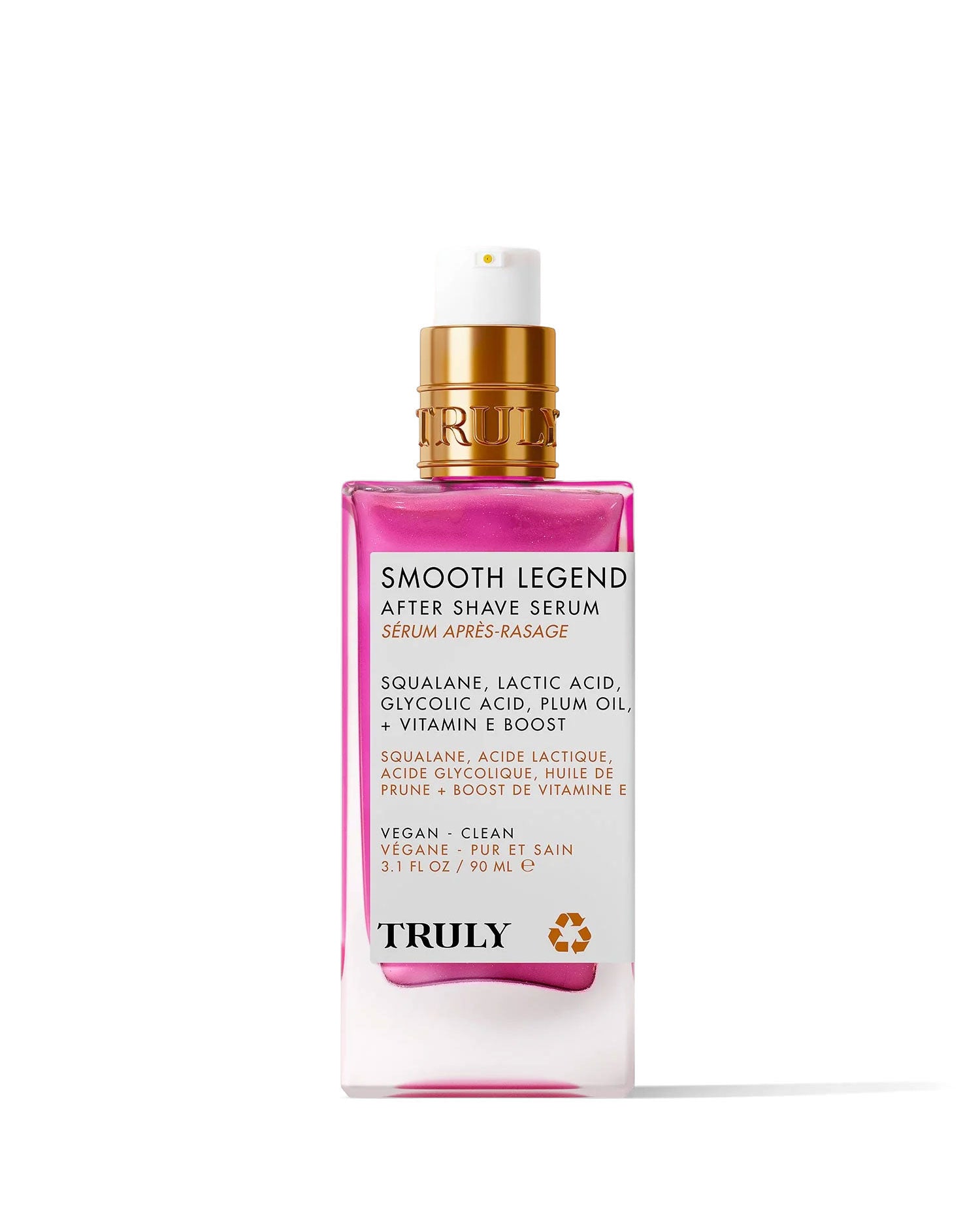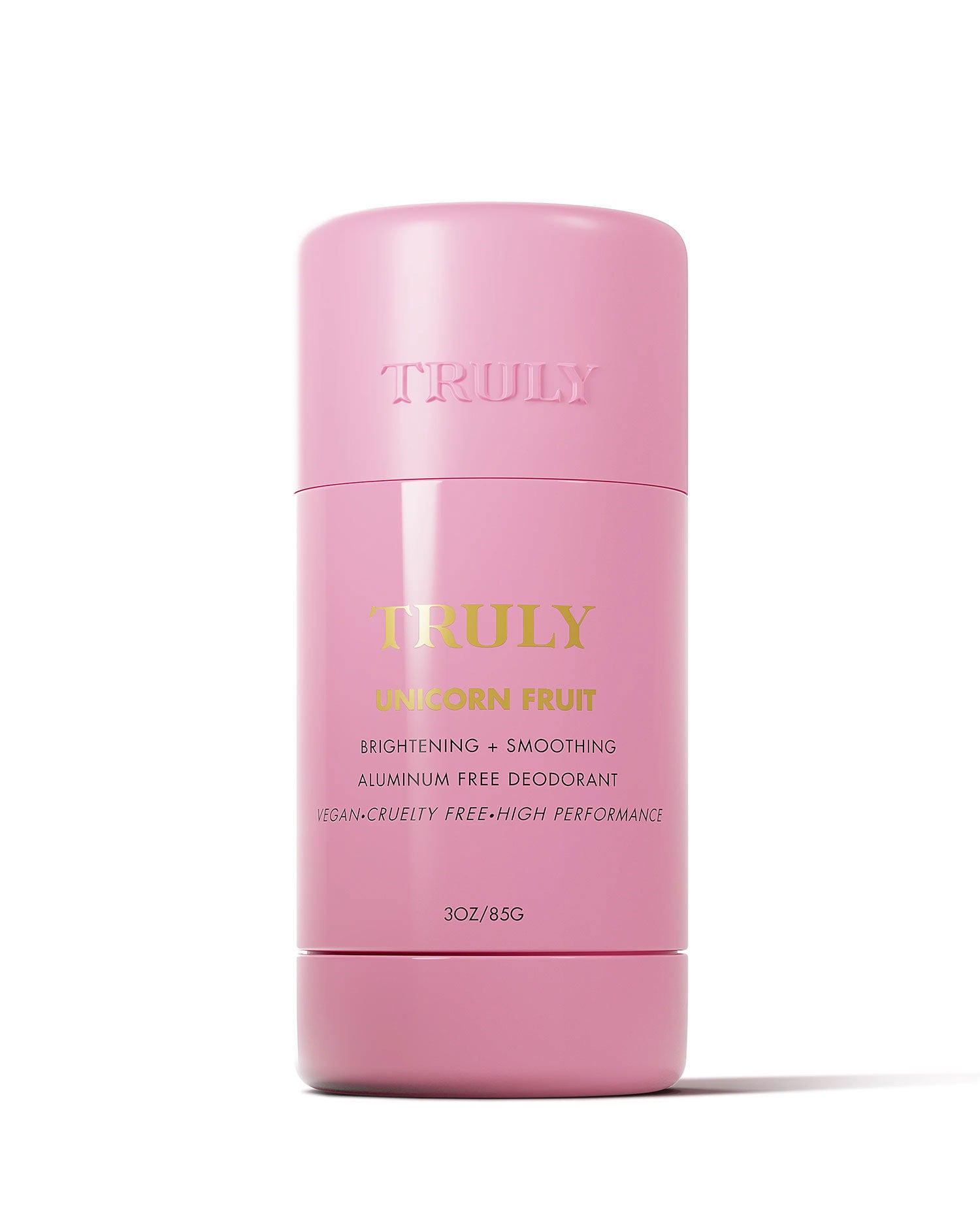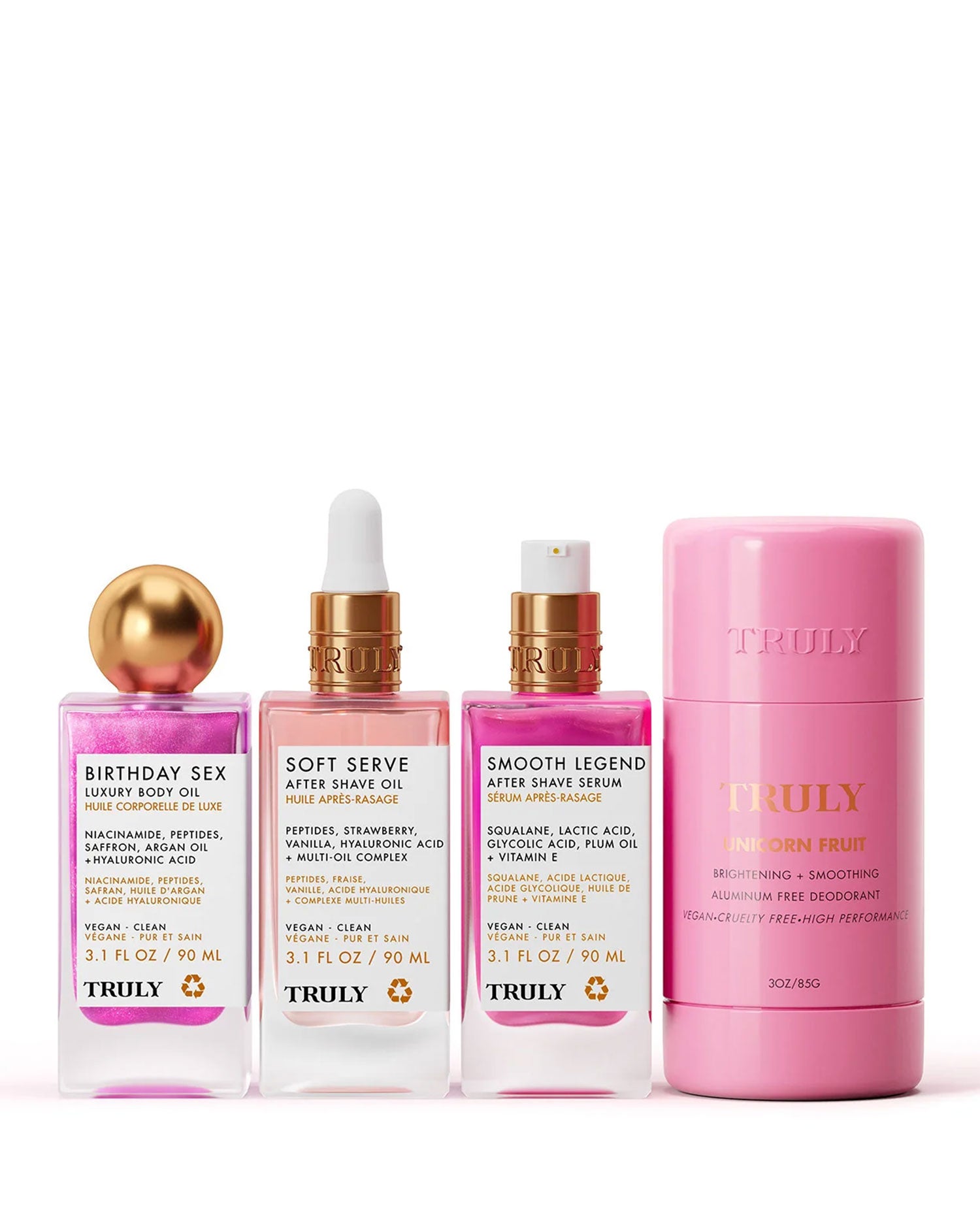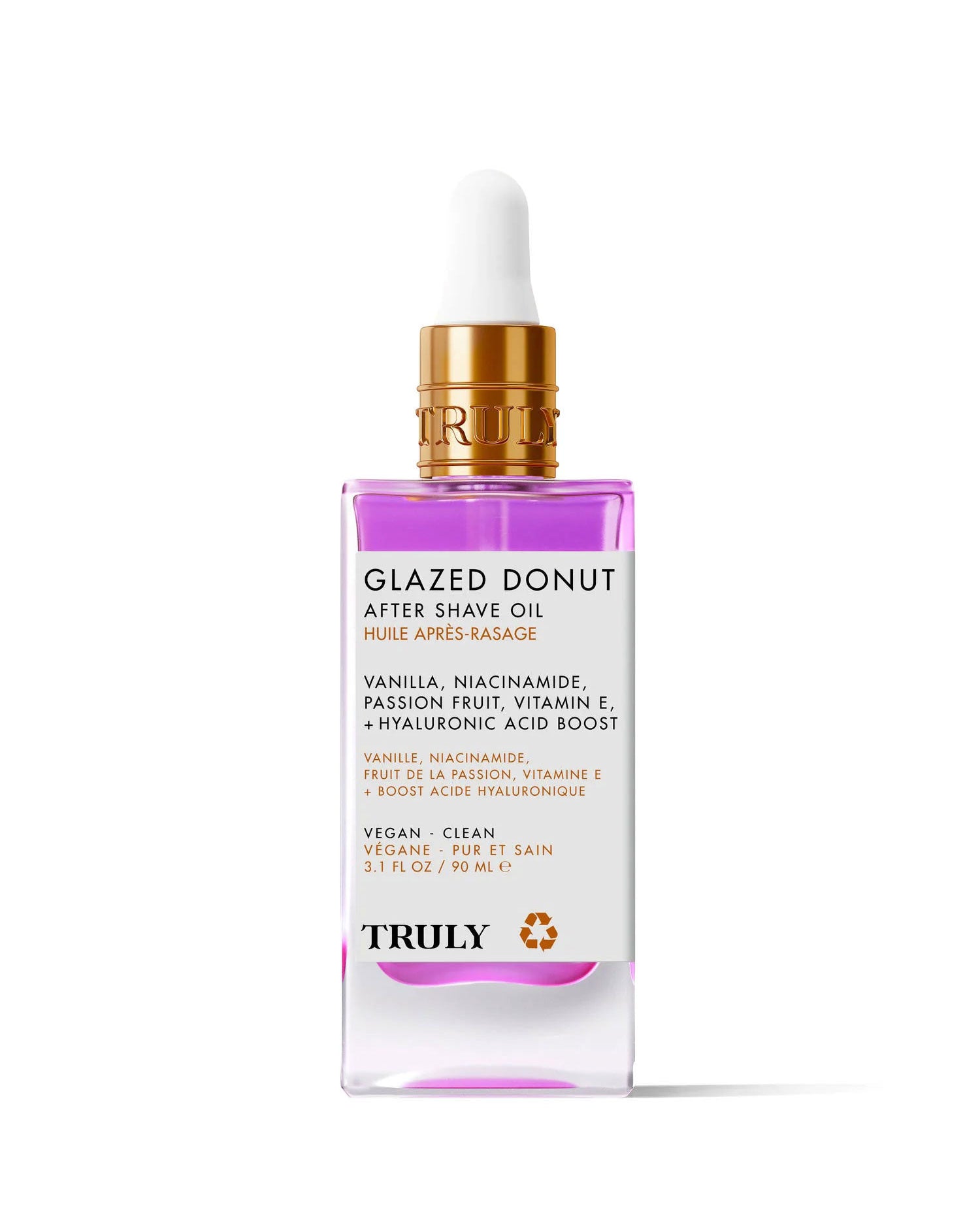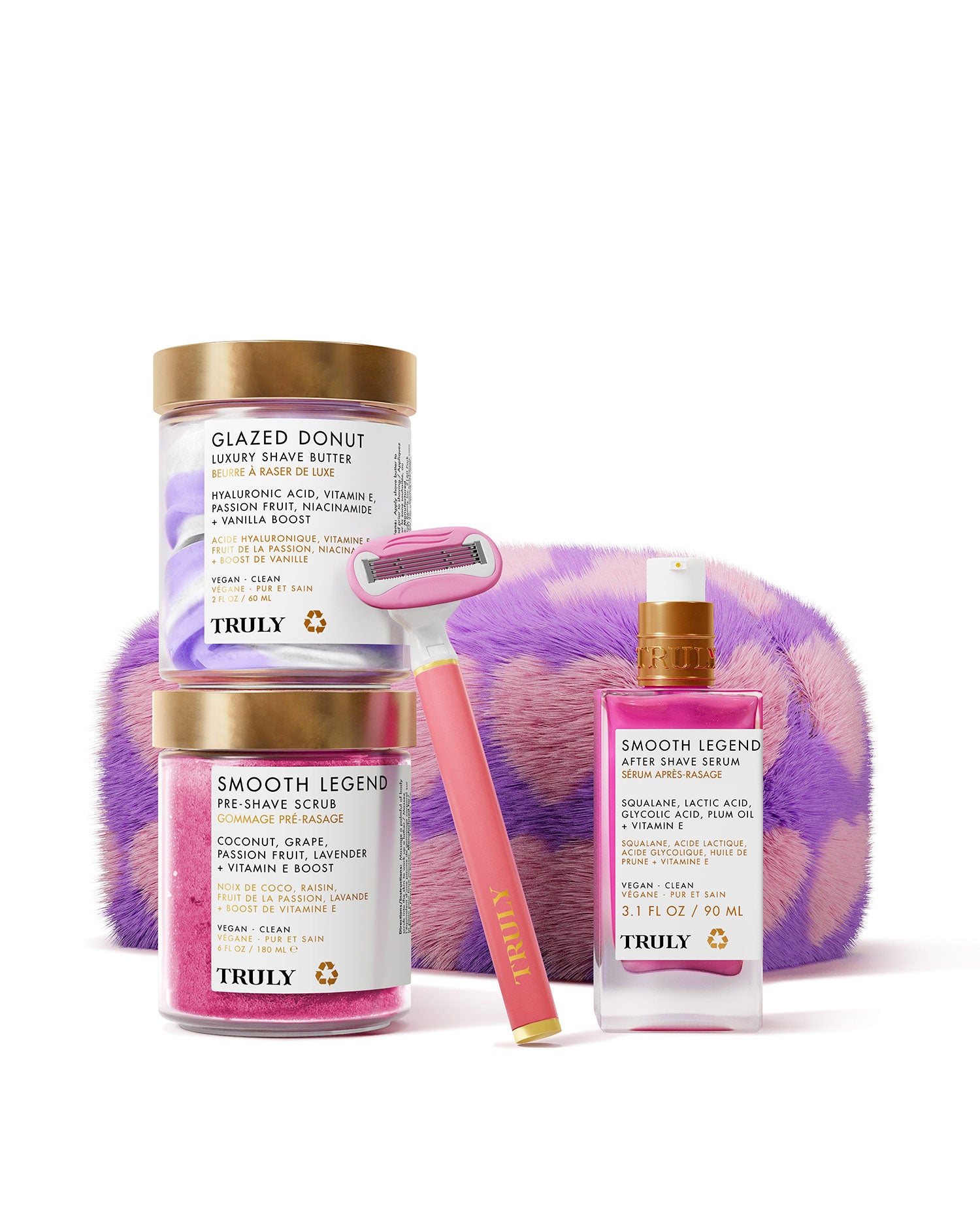Newness alert: The Beauty Oil You Need For Your Pubes
August 30, 2021
By: Truly Beauty
First there was Emma Watson who openly admitted to using the pube-conditioning oil, Fur Oil. Then it was Ashley Graham asking the question in an interview with Glamour a year later, "Am I the only single woman with a bush?"
The conversation about pubic hair is becoming more open and more widespread. Finally!
We want you to know that going (or staying!) au natural is completely normal, natural, and according to studies: healthy.
Research shows that waxing or shaving your pubes could increase your risk of contracting an STD by 80%. That's because injuries caused during hair removal can leave you vulnerable to infections.
Want to let your pubic hair grow? We've just dropped our new Cooka products to help you care for it.
COOKA OIL
For pubic hair and skin
Never thought you needed beauty products for your pubes? Turns out you do.
A good moisturizer goes a long way for your bikini area. It keeps things smooth, soft, and painless.
Truly's Cooka Oil relies on jojoba oil and primrose for its hydrating properties, and lavender and tea tree for its soothing abilities. The result? Softer pubes, no razor burn, and less redness.
Whether you trim, shave, or keep your pubes, this antimicrobial moisturizing oil gently soothes irritation, softens the skin, clears pores, and combats ingrowns. With daily use, you'll experience a noticeably softer texture - both in your hair and skin.
How to use:
Apply the oil as needed to your pubic hairs, bikini line, underarms, chest, legs, and face.
COOKA CONCENTRATE
For ingrown hairs and razor bumps
Pesky pubic ingrowns? Treat them with Truly's Cooka Concentrate.
Formulated with lavender, tea tree oil, jojoba, primrose, and antimicrobials, this topical concentrate relieves and prevents ingrown formation around the pubic areas and other parts of your body where there's body hair.
Thanks to lavender's soothing effects, this ingrown concentrate reduces redness and eases discomfort if you're experiencing ingrowns or razor burn. Jojoba oil and primrose oil work together to moisturize and promote an even skin tone.
How to use:
Apply the serum as needed on areas prone to ingrowns and irritation, including the pubic area, underarms, legs, brows, and chin.
REASONS TO KEEP YOUR PUBES?
Wondering whether to let them stay or go?
According to dermatologists, pubic hair does have a purpose - a very important one.
"Pubic hair's purpose is to protect the vagina from friction and abrasions," says Jaime Knopman, M.D., reproductive endocrinologist at NYC's Colorado Center for Reproductive Medicine. "It can also help prevent the growth of bacteria."
The vaginal region can be a sensitive area, so the pubic hair provides protection against bacteria, STIs, and even irritation during intercourse.
Besides that, more and more woman are learning to embrace their pubic hair, rather than shun it.
"I think the strong movement towards body acceptance and positivity that has been swelling up for the past few years includes embracing your pubic hair in its natural state," says Bea Feliu-Espada, founder of feminine-care brand The Honey Pot.
There's a whole conversation about it on social media, with women opening up about their pubic hair preferences.
So if you want to embrace your strands down there, go ahead. It's totally, 100% your choice how you decide to care for your pubes. Never forget that!
MAKE THESE PRODUCTS PART OF YOUR BIKINI AREA SKINCARE ROUTINE
These two products work phenomenally when combined with good bikini haircare habits and hair removal techniques. Here are some tips for taking care of your pubes - and pubic area.
- Exfoliate
When it comes to preventing ingrowns, exfoliation works wonders.
It helps remove dead skin and trapped oil, warding off ingrown hair growth.
Look for an exfoliating product that contains a hydrating ingredient like coconut oil and antibacterial ingredient like tea tree oil.
- Groom Properly
If you're going to shave or trim your pubes, make sure you do it properly to prevent cuts, bumps, and ingrowns.
For starters, always use a shaving cream.
"Shaving dry will increase the chance of cutting yourself or developing a rash," says Knopman. "Applying a shaving cream — in addition to soap and water — can help reduce that."
If you're going to trim, invest in a quality trimmer.
- Cleanse
When you let your pubic hair grow out, you'll need to follow a healthy cleansing regimen to prevent infections. Clean the area using a gentle pH-balanced cleanser or body wash, and avoid soaping up your labia, vulva, or inside your vagina.
- Oil Up
"Cutting and shaving pubic hair will make the ends feel more scratchy and bristly in texture, so the benefits of leaving pubic hair long is that it feels soft," says New York City–based holistic gynecologist Dr. Eden Fromberg.
Still, that doesn't mean you can't make things even silkier.
Try our strand-softening Cooka Oil to give your pubes the post-shower nourishment they need. Think of it as your pube conditioner.
- Treat Ingrowns
If you're dealing with ingrowns around your bikini line, treat the area with Truly's Cooka Concentrate. This ingrowns serum soothes and conditions the hair follicles, and prevents more ingrowns from occurring.
If you're feeling super dry down there, you can follow up with a lightweight lotion too, but it's not necessary.
- Let Her Breathe
In addition to a good skincare routine and nourishing, soothing products, avoid tight clothing and underwear and let your pubic area breathe. Switch synthetic fabrics for organic cotton underwear, and hop in the shower right after sweaty workouts to keep the area clean and healthy.
If you're ready to give your pubes some extra TLC, be sure to grab a bottle or two of our brand new Cooka Oil and Concentrate. They'll keep the area looking and feeling fine! Then again, it's up to you.
Your pubes your choice.













